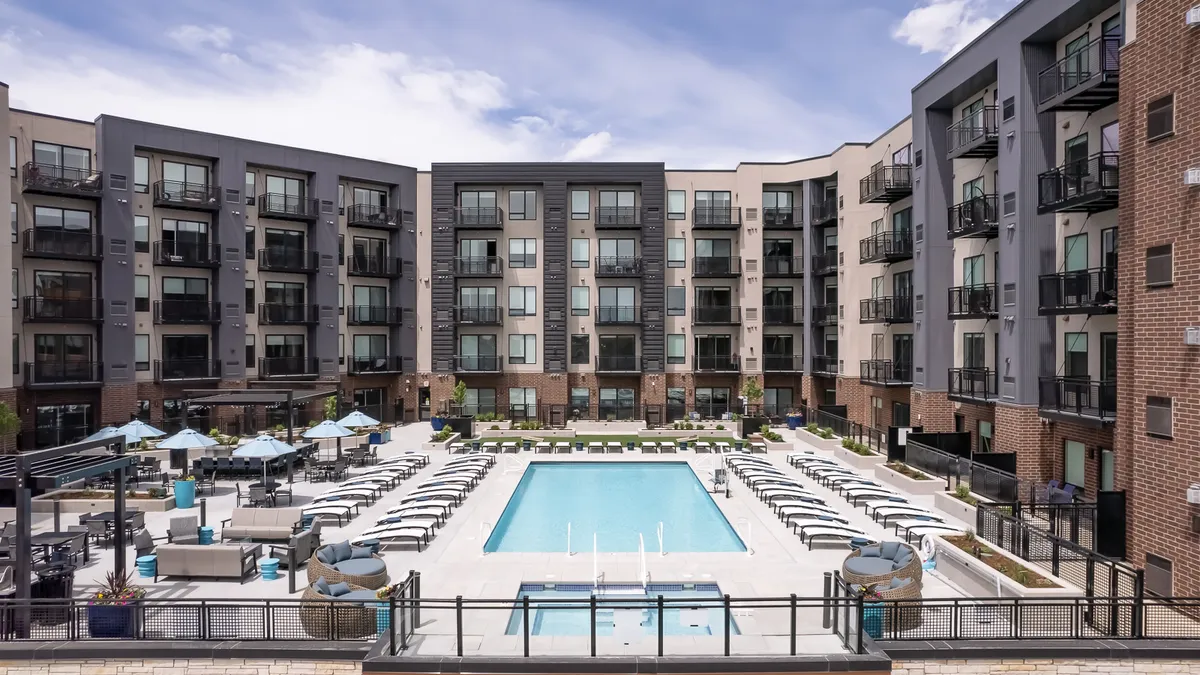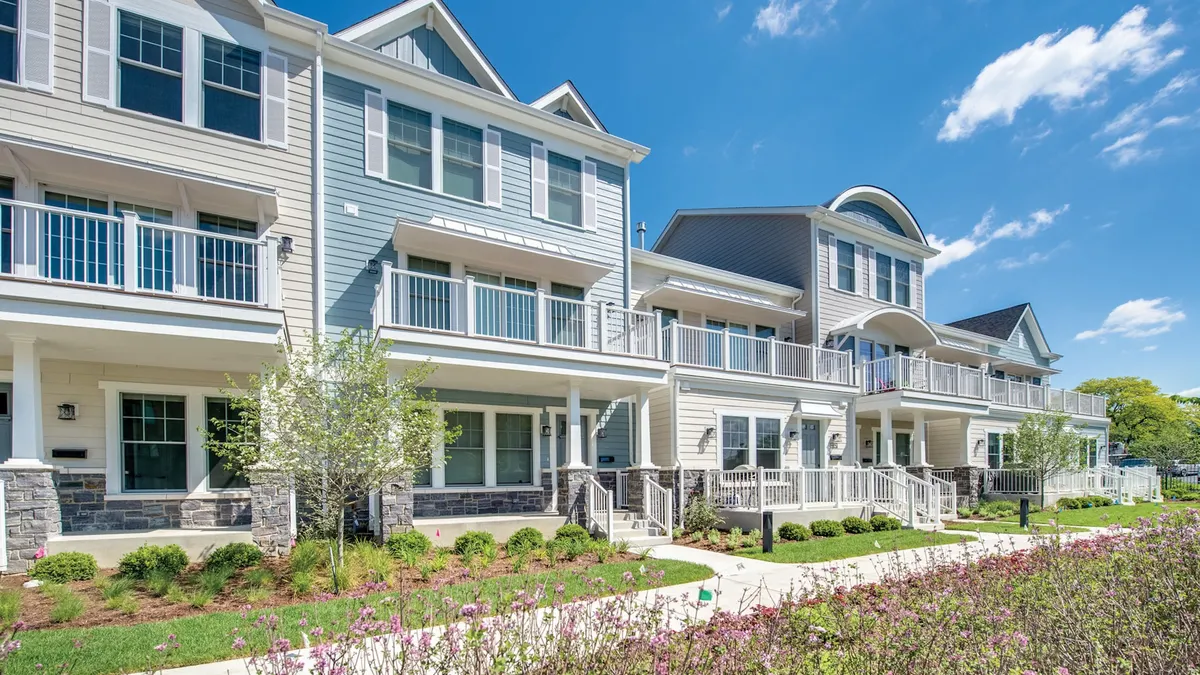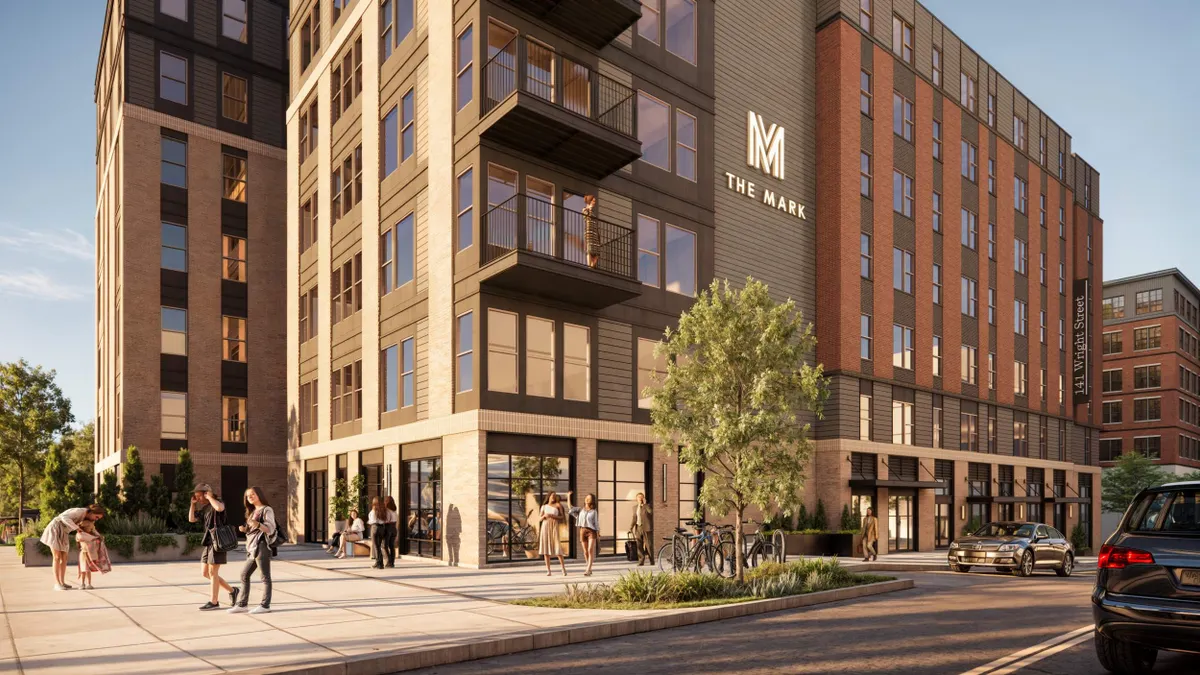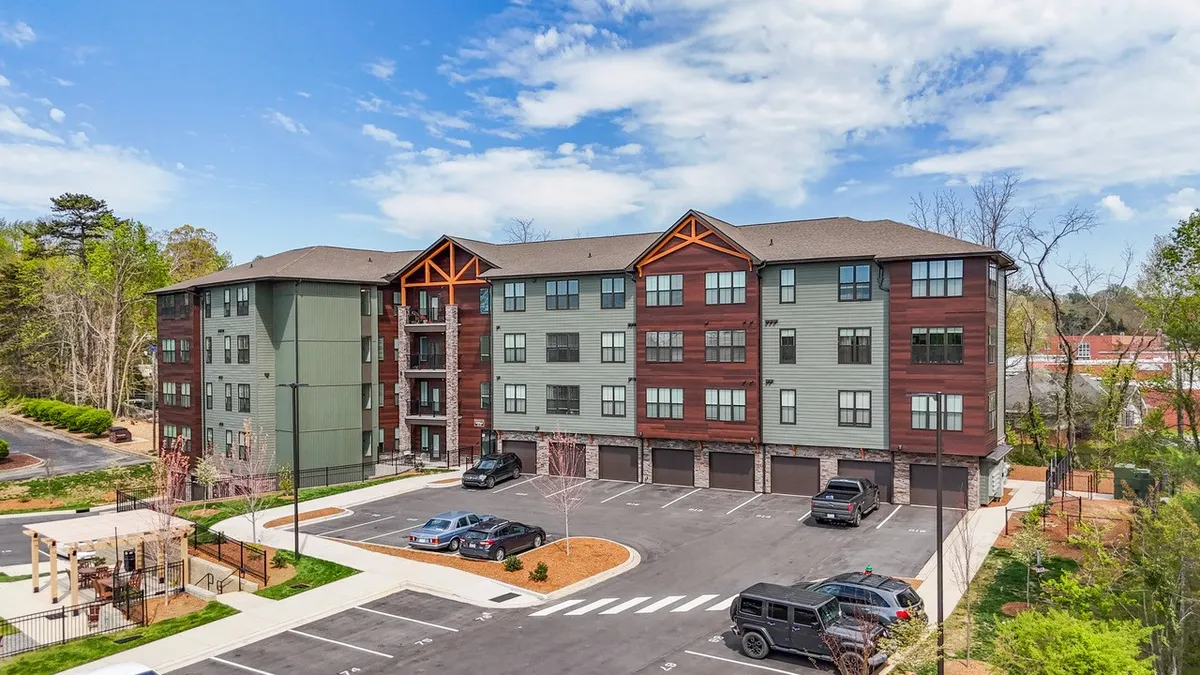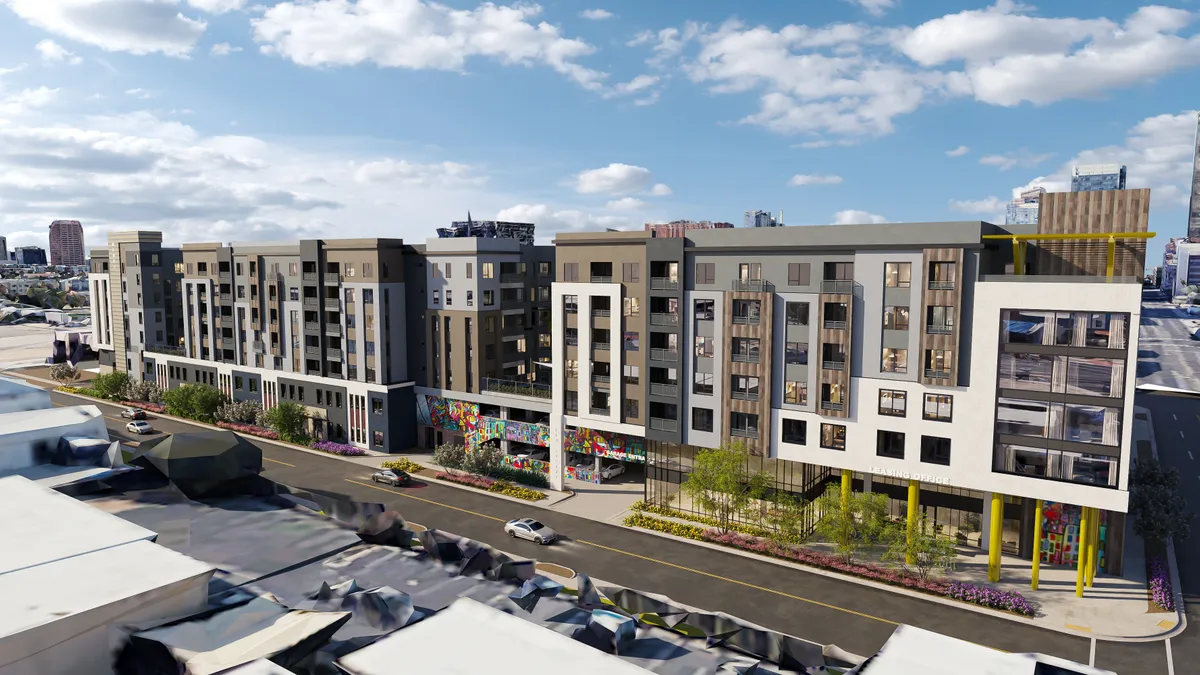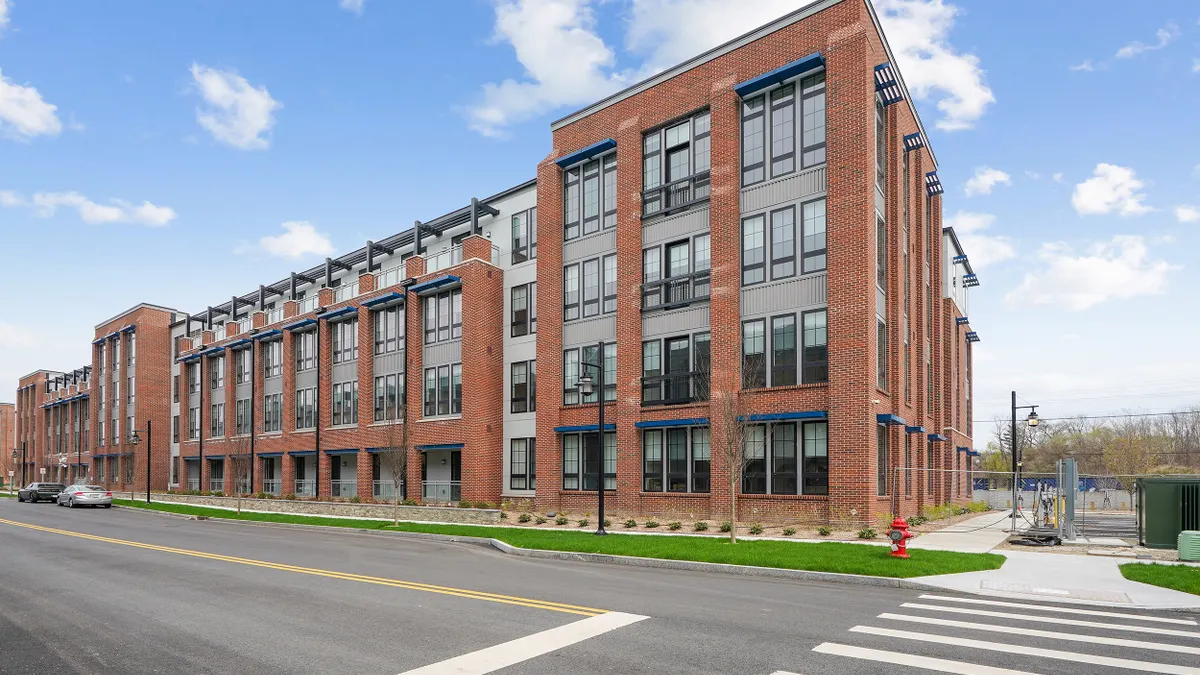Anne Olson didn’t take the traditional route to the top spot at a publicly traded apartment REIT. Instead of working her way up through acquisitions, development or property management, the new CEO of Minot, North Dakota-based REIT Centerspace, came through the legal industry.
Before Centerspace, Olson headed investments for industrial real estate firm Welsh Cos., where she worked on private-to-public transactions. Then she served as a partner at law firm Dorsey & Whitney LLP, advising public REITs, private REITs and multifamily developers.
Olson arrived at Centerspace as general counsel, but her mandate was to start an asset management group. Her first focus was selling the company’s medical office buildings, retail and industrial assets and some multifamily properties. After a year, she took over operations for the company, which was tightening its focus on apartment buildings.
On March 23, Centerspace announced that Olson would lead the company as the new CEO, replacing Mark Decker.
“Mark and I were really partners with our CFO,” Olson said. “We built a leadership team that was focused on multifamily and has a lot of really deep experience. And over the course of that time, in particular the last couple of years as a public company, our board was very focused on succession planning at all of the executive levels,” Olson said. “And this was part of that plan.”
Here, Olson talks with Multifamily Dive (before Centerspace’s recent earnings release) about her top priorities, target markets and on-site centralization.
This interview has been edited for brevity and clarity.
MULTIFAMILY DIVE: What are your main priorities stepping into this job?
ANNE OLSON: Our focus right now, in the immediate term, is going to be on ensuring that we really are excellent operators so that we're making the most of what we have, and growing same-store revenue, same-store NOI, integrating the assets that we've acquired in the last couple of years and positioning ourselves so that we can be scalable when the transaction market comes back.
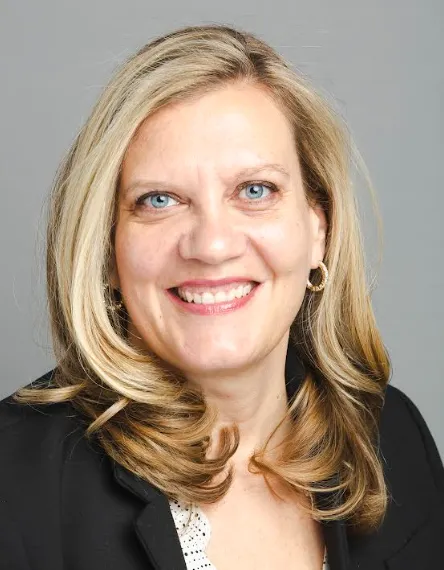
That is our No. 1 priority, which is a continuation of the strategy that we've been building off of with an investment in technology, focus on resident experience and focus on team member experience — really making this a great place to work and therefore that will extend into the financial returns.
After deciding to focus on apartments, how do you plan to adjust your portfolio?
We still want to continue to enhance the portfolio. Over the last five years, we've entered Denver, we've gotten rid of a couple of our tertiary markets entirely and we have been pruning the portfolio. That's really a constant.
Of course, you want to time as best as you can. But we do have some products in the tertiary markets that are a little bit more Class B product and there's still a really big appetite for that out there.
After going into Denver last year, are there other markets that you’re targeting?
We look in a lot more markets than we own in, particularly with a focus on non-coastal markets that have really great fundamental drivers — good job growth and good population growth. The high cost of housing is something that we watch closely.
We probably have a little bit more traction in the Mountain West. But we're also looking at some of those Sun Belt markets that have been pretty popular. They are seeing an enormous amount of supply and the prices don't seem to be coming down.
Is there a certain unit size that you want to hit?
I'm not a subscriber to the “bigger is better.” I'm a subscriber to the “better is better.” We would like to scale the business and to me that's not necessarily about unit count but about market capitalization and revenue growth. Our goal is to increase our core funds from operations each year and show consistent growth in that line item.
I can generate good increases in that cash flow bucket with fewer units if you have units that are paying higher rents and are in larger properties. Right now, we're not focused on a unit goal.
We're more focused on making sure that we're growing distributable cash flow and that we have great earnings growth in the core FFO line. A lot of that is about increasing our rent per unit. So you might see us continue into markets that have a little bit higher rent growth, like we're experiencing in Denver.
If we're pruning, you’ll probably see us prune off some of the smaller buildings with lower rents — just continuing that transition of the portfolio. That could result in more units. It should result in more revenue. Better earnings growth is really the goal.
A lot of REITs are pushing toward centralization of their on-site operations. Is that a priority for Centerspace?
There are a lot of pressures that are forcing centralization. One being that there are a lot of tech companies out there with good ideas that seem interesting. But the biggest driver in my mind is the labor market. It's just getting tighter and tighter.
As more and more supply comes in multifamily, we're not growing property managers anymore or maintenance technicians. When a new building comes on, they're looking at your buildings and trying to hire.
So enhancing our ability to lower staff ratios or get the work done with technology is really going to become a necessity. We're focused on self-service options for our residents. Can we have portals? Can they put in their work orders themselves? Is it an AI that texts them about their appointments and their maintenance requests?
We’re focused on making sure that we're giving a really good customer experience and we're meeting that resident where they want.
Click here to sign up to receive multifamily and apartment news like this article in your inbox every weekday.


